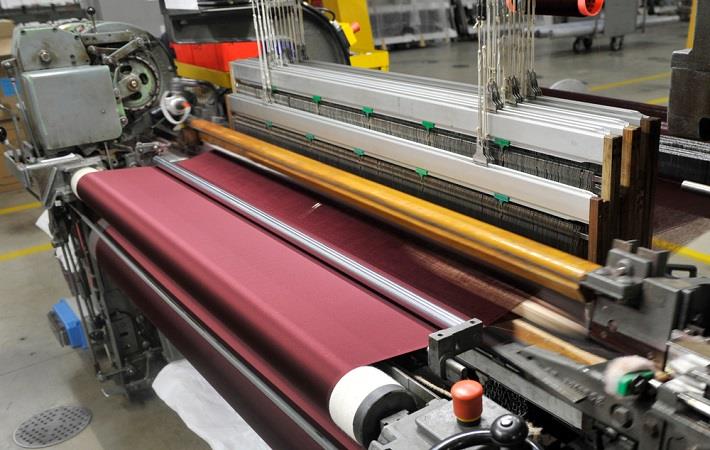Textiles industry broadly welcomes Union Budget 2021-22

The grant to the textiles and clothing sector in Union Budget 2021-22 is ₹3,614.64 crore, which is about 10 per cent higher than the revised budget of ₹3,300 crore in 2020-21. The budget also puts emphasis on Infrastructure Development and Research & Capacity Building as the grant for these sectors has been increased by about 43.7 per cent and 77.5 per cent respectively as compared to last year. Share of these sectors in total textile and apparel budget allocation for 2021-22 stands at about 6 per cent and 10 per cent respectively.
The Budget allocates ₹700 crore for Amended Technology Upgradation Scheme (ATUFs) against ₹545 crore in last Budget, which will help to clear the pending capital subsidy. It allocates ₹30 crore for Export Promotion Studies against ₹5 crore in last Budget, and ₹100 crore for Integrated Scheme for Skill Development.
Welcoming the first paperless Budget presented by Union finance minister, the Confederation of Indian Textile Industry (CITI) has said it will lay a strong foundation for future growth of the textiles and clothing industry in India.
The announcement on setting up of seven mega textiles parks is the highlight of the Union Budget 2021-22, directly impacting the textile industry, The Clothing Manufacturers Association of India (CMAI), the apex association of the apparel industry of the country, said. While the Tiruppur Exporters Association (TEA) termed the Union Budget 2021-22 as 'pragmatic' as it addresses issues of all sectors at a time when the Indian economy is getting back to normalcy.
"With the active support and cooperation of the government, the textile industry will become globally competitive, attract large investments and boost employment generation and exports in the years ahead," the Northern India Textile Mills' Association (NITMA) president Sanjay Garg said.
"The Production Linked Incentive (PLI) scheme for man-made fibres and technical textiles with a total outlay of ₹10,683 crore will help the textile industry to become globally competitive, attract large investments and boost employment generation. Moreover, to achieve the target of $350 billion from the current size of $167 billion, our manufacturing sector has to grow in double digits on a sustained basis. Our manufacturing companies need to become an integral part of global supply chains, possess core competence and cutting-edge technology," CITI chairman Rajkumar said. He added that the reduction in customs duty on caprolactam, nylon chips and nylon fibre & yarn to 5 per cent is step in the right direction, as it will bring nylon chain on par with polyester and other man-made fibres.
Rajkumar also welcomed rationalisation of exemption on import of duty-free items as an incentive to exporters of garments, leather, and handicraft items. "All these items are domestically produced in excellent quantity and quality by our MSMEs and help the textile industry and exports too," he said.
As per Union Budget 2021-22, cotton and cotton waste which is currently under nil rate of import duty is being subjected to 10 per cent import duty through the budgetary announcement comprising of 5 per cent Basic Customs Duty (BCD) and another 5 per cent Agriculture Infrastructure and Development Cess (AIDC) on cotton and 10 per cent BCD on cotton waste. The new import duty came into effect from February 2, 2021.
CITI and The Southern India Mills’ Association (SIMA) has described this as a severe blow for the ailing cotton textiles and apparel industry. The associations appealed to the Prime Minister to immediately withdraw the levy of 10 per cent import duty on cotton and cotton waste to sustain the global competitiveness of Indian textiles and apparel industry and prevent job losses for several lakhs of people, prevent fall in the exports and also curb cheaper imports of value added products from the SAFTA countries like Bangladesh, Sri Lanka, etc.
"The levy of 10 per cent duty will not benefit the cotton farmers as the normal import of 12 to 14 lakh bales per year accounts for only around 3 per cent of Indian cotton production and consumption and such cotton is not produced in India. But this is essential to sustain the share of value added / niche markets of India, both in global and domestic markets," SIMA chairman Ashwin Chandran said in a press release.
He added that after the introduction of Bt cotton that accounts for over 97 per cent of the cotton produced in the country, the cotton textile industry has to import extra-long staple (ELS) cotton, organic cotton, contamination free cotton to the tune of 10 to 12 lakhs bales per year to meet the demands of the global customers and also the value added made-ups and apparel segments of the domestic market.
"The sudden announcement of levying import duty on cotton has come as a rude shock for the industry that is just coming out of the ill effects of COVID-19. The levy on cotton has also defeated yet another government policy of addressing inverted duty structure in the GST, as the cotton value chain attracts 5 per cent GST and will add the cost to the customers and discourage value addition," he added.
The imposition of 10 per cent BCD on raw cotton was surprising, said The Cotton Textiles Export Promotion Council (TEXPROCIL) chairman Manoj Patodia in a media statement. This will make imports of ELS cotton costly, especially Giza cotton from Egypt and Supima cotton from the US.
He expressed his apprehension that the imposition of import duty on cotton will increase the domestic prices of cotton, which will now be based on the import parity price plus the BCD, which in turn will increase cost for value-added products like fabrics, made ups and garments. He also pointed out that there has been a decline in imports of cotton by a sharp 77 per cent during January-November 2020 as compared to the same period in 2019, and as such there is no case for an imposition of import duty on cotton.
He added that if the BCD on cotton is not withdrawn immediately, it will have an adverse impact on employment and investments in the value-added textile and clothing sector.
Among other Budget announcements, CITI welcomed the move of allowing women to work in all categories and also in the night-shifts with adequate protection, as well as the modified definition of small companies: companies with a paid-up capital not exceeding ₹2 crore and a turnover not exceeding ₹20 crore are to be considered small companies, implementation of the 4 labour codes, minimum wages to all categories of workers, and all will be covered by the Employees State Insurance Corporation (ESIC).
SIMA chairman thanked the government for announcing the Production Linked Incentive (PLI) Scheme by allocating ₹1.97 lakh crore, including ₹10,683 crore for textile industry, giving thrust to develop the global competitiveness in the MMF textile value chain. He said that the focus product incentive scheme under PLI Scheme for MMF and technical textiles would give enormous opportunity for the growth of Indian MMF and technical textile products.
On the MITRA scheme, Chandran said that Tamil Nadu being the largest textile manufacturing state, is planning to develop three mega parks under the scheme, as Andhra Pradesh and Telangana are already having one such park each. "This would facilitate attracting large scale investments including FDI and JVs."
While applauding the government's intention to encourage mega projects and increasing the scale of operations in the textile Industry, CMAI president Rajesh Masand added a note of caution: "The government also has to very closely study why the textile parks have not really succeeded in the past. It is very crucial to avoid errors of omission and commissions in the past. Otherwise, this will remain one more well intended scheme which fails to lift the fortunes of the textile industry."
The permission to form a one-person company may also indirectly benefit the smaller apparel manufacturers, many of whom are in the micro sector and one-man shows. They are likely to get much more banking support than before. The increase of the tax audit slabs should also benefit the smaller members of the apparel sector, according to CMAI.
“I sincerely thank the finance minister for taking care of all the sectors including the apparel sector. This is one of the finest budgets considering the current situation due to the coronavirus pandemic. All key sectors like health, agriculture, infrastructure, finance and skilling have been covered well. It will improve the economy,” Apparel Export Promotion Council (AEPC) chairman Dr A Sakthivel said in a media release.
Sakthivel thanked the government for the Budget decisions that will promote production and export of MMF based garments. “Our main request was related to MMF garments and that has been considered by the government. The ₹10,683 crore Production Linked Incentive (PLI) scheme for MMF garments and technical textiles, along with new Mega Investment Textile Parks scheme for setting up seven textile parks in India over three years will bring in huge investment in the MMF sector,” he said.
The focus on infrastructure highways, railways and ports is a welcome decision as it will go a long way in improving the logistics and reduce the cost of doing business, according to Sakthivel. Further, the rationalisation of GST and customs will also help in easy access to raw materials and export of value-added products.
“The reduction in custom duty on nylon will further promote the MMF garments,” said AEPC chairman, adding that the doubling of budget provision to micro, small and medium enterprises (MSME) sector with the allocation of ₹15,700 crore in the coming fiscal will strengthen the sector crucial for employment, manufacturing and exports.
Coimbatore-based Indian Texpreneurs Federation (ITF) welcomed the thrust given to textile sector in Union Budget 2021-22, particularly with the announcement of establishment of seven mega textile parks. "With the concept of these mega parks with a plug and play model, Indian textile and apparel sector, particularly SMEs, can work on scale and build competitiveness in manufacturing. Further, these parks can be aligned with ESG (Environmental, Social and Governance) goals to attract international buyers as well as investors," ITF convenor Prabhu Dhamodharan said. "The mention of 3-year time period is a welcome one to capitalise the opportunities emerging from brands' China plus one strategy. Tamil Nadu with a robust manufacturing eco-system should work towards getting 2 parks."
Meanwhile, the Tiruppur Exporters Association (TEA) has termed the Budget as 'pragmatic' as it addresses issues of all sectors at a time when the Indian economy is getting back to normalcy. TEA president Raja M Shanmugham welcomed the fund allocation to roads and highways infrastructure facilities, specifically to Tamil Nadu State. In her Budget speech, Sitharaman proposed 3,500 km of National Highway works in the state of Tamil Nadu at an investment of ₹1.03 lakh crore. She also announced the Chennai-Salem corridor: a 277 km expressway will be awarded, and construction would start in 2021-22.
In its pre-Budget memorandum to the finance minister, TEA had sought support for migrant workers. Shanmugham thanked the minister for allowing a new tax exemption for the notified Affordable Rental Housing Projects. The proposal to allow women workers in all categories in the night shifts with adequate protection, and reduction of compliance burden on employers with single registration and licensing, and online returns, are also welcome steps, TEA said in a press release.
While stating that the taxation changes proposed in the Budget will benefit MSMEs in a big way, NITMA's Garg said there is an urgent need of raising customs duty on man-made yarns to 10 per cent. "The man-made yarn sector is one of the largest employment generating segments within the textile industry, and it is highly capital and labour intensive industry as well. The unreasonably low-priced imports of man-made yarn into India have been causing considerable amount of injury to domestic manufacturers for the last 5 years or so. Industry has deep concerns over the rise in import quantities being dumped into India, which can potentially cause a permanent damage to domestic MMF sector with the cascading effect, from closure of units to NPAs, and eventually resulting in huge employment loss," Garg said.
According to him, the increase in customs duty on cotton from nil to 10 per cent and on raw silk and silk yarn from 10 per cent to 15 per cent will benefit domestic cotton and silk growers. He said the custom duty policy announced has dual objectives of promoting domestic manufacturing and helping India get on to global value chain and export better. He added that the domestic textile industry will get easy access to raw materials and exports of value-added products, which will make textile industry globally competitive.
Fibre2Fashion News Desk (RKS)
































-Ltd..jpg?tr=w-120,h-60,c-at_max,cm-pad_resize,bg-ffffff)





.jpg?tr=w-120,h-60,c-at_max,cm-pad_resize,bg-ffffff)
.jpg?tr=w-120,h-60,c-at_max,cm-pad_resize,bg-ffffff)






